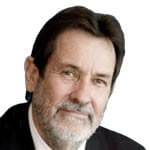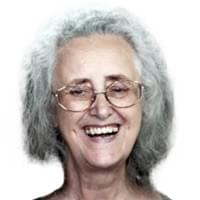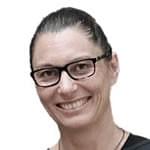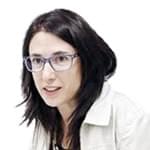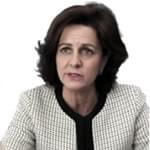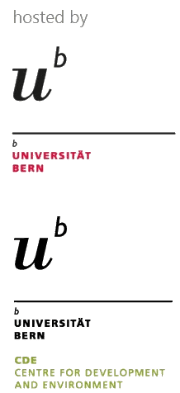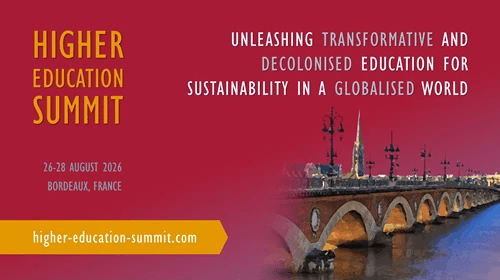
THOUGHT PROVOKERS
Get inspired
DAY 1: DEEP SPACE I: TRANSFORMATIVE LEARNING AND LEADERSHIP IN HIGHER EDUCATION
Facilitator: Anne Zimmermann, University of Bern
Meet thought provokers and star practitioners who seek to transform teaching and learning in higher education for a brighter and sustainable future.

Geoff Scott
Geoff Scott is Emeritus Professor of Higher Education and Sustainability at Western Sydney University, Australia. From 2004-2012 he was Pro Vice-Chancellor (Quality) and Executive Director of Sustainability at WSU. During this time he led a range of successful external quality audits and established the UN endorsed RCE Greater Western Sydney.
He is a widely published author of reports and articles on change leadership, sustainability, social entrepreneurship, professional capability, what distinguishes successful early career graduates in a wide range of professions, assuring achievement standards and quality assurance in higher education. His book Turnaround Leadership for Higher Education with Canada’s Michael Fullan (2009) received the US Colleges’ Bellwether Award.
He is a former director of the Australian Council for Educational Research, a Fellow of the Australian College of Education, a foundation member of the panel of TEQSA experts and a higher education auditor, board member and consultant in many countries. From 2014-2016 he was National Senior Teaching Fellow with Australia’s Office for Learning and Teaching. This Fellowship focused on how best to develop highly capable, work ready plus graduates for an uncertain future and resulted in a website for assuring the quality of tertiary learning and teaching (http://flipcurric.edu.au/) that currently has more than 13,000 Higher Education users around the world. In 2007, he was the Recipient of the Australian Higher Education Quality Award.
Outline: What does it mean to build social entrepreneurship into the curriculum of universities and colleges? How are tertiary education institutions leading the way in helping their countries to systematically address the United Nations 17 Sustainable Development Goals using social entrepreneurship projects in their learning programs and community engagement activities? ‘Powerful’ forms of assessment identified on the FLIPCurric site co-created by 3,700 HE leaders of Learning and Teaching from around the world and findings from research with 180 experienced ESD leaders on effective change management will also inform this keynote.

Marilyn Mehlmann
Marilyn Mehlmann combines backgrounds in psychosynthesis, empowerment and action research to co-create new methods and tools for personal and professional development. She was General Secretary of Global Action Plan International 1995–2016, is a VP of the Union of International Associations (UIA) and a founder member of Legacy17. She has worked in more than 20 countries to empower people and organizations to take action for sustainable development, and was awarded the Rachel Carson Prize 2011–2012. She regularly speaks and lectures at events, and has authored and co-authored numerous publications. She is currently co-authoring a book on “Transformative learning in adult education” that is part of an Erasmus+ project. Talking about the challenge of learning for change, she once said: “I don’t want to reinvent wheels, I want to re-use them”.
Outline: We need to change. We even want to change. This willingness is the basis for transformation, but is not the same. Transformation is rooted in a consciousness shift to a broader perspective, and as such is irreversible and largely unpredictable.
Transformative learning places new demands on educators and learners alike. Not least, educators need to lead by example: to be on their own transformative learning path, guided by their own vision of desirable futures. Progress needs to be redefined.
DAY 2: DEEP SPACE II: ENHANCING QUALITY IN HIGHER EDUCATION: INTEGRATING SUSTAINABILITY IN QUALITY ASSURANCE
Facilitator: Clemens Mader, University of Zurich & Empa – Technology and Society Laboratory
Meet thought provokers and star practitioners who are rethinking quality standards to align them with sustainable development.
Is there a match between quality assurance processes and standards and the whole-institution approach? How can we support universities and quality assurance agencies in their efforts to connect quality and sustainability?

Bonnie McBain
Bonnie McBain is a Senior lecturer at the University of Newcastle, Australia. She has research and teaching interests that focus on sustainability. In particular, she is interested to discover how the theories of complexity and resilience can inform action towards a more sustainable future. She has extensive experience in community engagement both within the university sector, in government and in community. Bonnie researches Ecological Footprint policy development having developed a global Ecological Footprint model that is used to explore the effectiveness of future policy scenarios. She also has a research interest in learning for sustainability. She is extensively engaged in community change projects. Bonnie shares her expertise in a blog called Herding the Green Chicken, in The Conversation, via Twitter @TheGreenChook, academic publications, via LinkedIn, reports and on YouTube.
Outline: How do we develop an agreed set of competencies for graduates from environmental degrees when there is significant diversity in degree programs and graduate employment destinations? In this presentation, I will outline how we developed a set of learning outcomes for environmental degrees in Australia. I will argue that the development process to build learning outcomes is just as critical for their uptake as the quality and relevance of the learning outcomes themselves. Our process could not have been successful without an acknowledgement of its complexity (e.g. stakeholders with divergent perspectives about what environmental education is and what the job ready skills should be). An inclusive collaborative process that actively engaged over 200 participants from broad stakeholder groups has meant that participants owned the outcome. This has been critical for subsequent uptake.

Marta Fonolleda
Marta Fonolleda has a degree in Environmental Sciences and holds a PhD in Environmental Education. Since 2015, she is the director of the Andorran Agency for Quality Assurance in Higher Education (AQUA). She is one of the three national focal points to the UNECE Steering Committee on Education for Sustainable Development. Marta is also assistant professor at the Department of Mathematics and Science Education (Faculty of Educational Sciences – Universitat Autònoma de Barcelona) and researcher of the Complex Research Group (2014SGR543), dedicated to the incorporation of principles of complexity in environmental education, science education and consumption education. Her main fields of work and research are: environmental education and education for sustainable development in teacher training; curriculum greening at various levels of education, from primary to higher education; and professional competences in education for sustainable development.

Daniella Tilbury
Daniella Tilbury is an educator and leader with expertise in higher education for sustainable development. She was the inaugural Rector of the University of Gibraltar and served in higher education leadership positions in Australia, China (Hong Kong) as well as the UK. She has been involved in change for sustainability since the 1990s when her doctoral research influenced international policy and contributed significantly to the progression of sustainability as a key agenda for higher education. She was recently recognised for this work and made an honorary Don by St Catharines College, University of Cambridge (July 2018). Her frameworks for reorienting higher education towards sustainable development led to UN policy advisory roles and to her Chairing several UN Committees including the UN Global Expert Group on Evaluation in Education for Sustainable Development (1995-2015). She leads the UNECE’s strategic strand on Quality and ESD that seeks to build capacity and tools to support the embedding the SDGs into quality frameworks across Europe. Daniella has undertaken commissioned work on behalf of national higher education agencies (HEFCE, HEA, ALTC and QAA) and travelled extensively across Africa, Asia, Latin America, Oceania and Europe to evaluate the investment and quality of higher education programmes. She was a member of the Board of WWF Australia and formed part of the governance team that brought Earth Hour to the World in 2007. She has over 100 books and international refereed articles.
Outline: As higher education institutions respond to the SDGs, questions are being raised as to how we recognize value and share experiences of quality education for sustainable development (UNECE 2019). A proposal of indicators to embed the SDGs into institutional quality evaluation is presented. These are part of an international project led by the Aragon Agency for Quality Assurance and Strategic Foresight in Higher Education (ACPUA) and the Quality Assurance Agency for Higher Education of Andorra (AQUA), and co-funded by the International Network for Quality Assurance Agencies in Higher Education (INQAAHE).
ORGANIZERS & CONTACT
The COPERNICUS Alliance Conference 2019 was organized by the COPERNICUS Alliance and CDE/University of Bern.
If you have any questions, please contact:
office@copernicus-alliance.org
